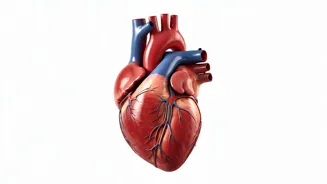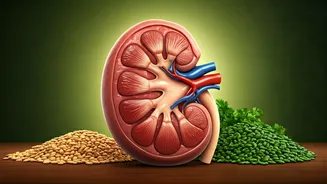Supplement Introduction
Prioritizing heart health is crucial for a long and energetic life, and one approach is through carefully chosen supplements. According to a prominent
US cardiologist, there are several supplements that are notably beneficial for cardiovascular wellness. It's important to remember that any changes to your supplement intake should ideally be discussed with a healthcare professional. By integrating these supplements into a balanced lifestyle, individuals can potentially support the health of their heart and contribute to overall well-being, allowing them to enjoy a fulfilling life filled with vitality. Remember that it is possible to maintain your cardiovascular health by making informed choices.
Supplement 1: CoQ10
Coenzyme Q10 (CoQ10) is an essential compound involved in energy production within cells. It functions as an antioxidant, protecting cells from damage caused by free radicals. Heart health benefits from CoQ10 include improved heart function, reduced blood pressure, and decreased risk of heart failure. It’s crucial to note that CoQ10 levels often decline with age and certain medications, emphasizing the importance of supplementation. People who take statins, common drugs prescribed to lower cholesterol, are advised to consider CoQ10 supplementation, as these medications can deplete CoQ10 levels. This supplement supports cellular energy, making it essential for heart cell function.
Supplement 2: Magnesium
Magnesium, an essential mineral, plays a vital role in over 300 enzymatic reactions in the body, including those crucial for cardiovascular health. Magnesium helps regulate blood pressure, heart rhythm, and artery function. Deficiencies in magnesium can lead to increased risk of heart disease, including high blood pressure, and irregular heartbeats. Incorporating magnesium-rich foods, or using magnesium supplements, can benefit heart health by supporting the regulation of blood pressure and maintaining a steady heart rhythm. People with heart conditions may find that magnesium aids in the proper function of the heart by supporting the health of its muscle tissue. In addition, it also contributes to overall well-being.
Supplement 3: Omega-3s
Omega-3 fatty acids, especially EPA and DHA, are renowned for their heart-protective properties. These essential fats can be obtained from fish oil, or algae-based supplements. Omega-3s help reduce triglycerides, lower blood pressure, and decrease the risk of heart attacks and strokes. Omega-3 fatty acids have anti-inflammatory effects that benefit the heart by reducing inflammation in blood vessels. Omega-3s are considered to be critical nutrients for anyone aiming to preserve heart health, assisting in everything from lowering dangerous fats in the blood to assisting overall arterial health. Supplementation can be particularly useful for those who do not consume enough omega-3-rich foods in their diet, and may offer significant benefits.
Supplement 4: Vitamin D3
Vitamin D3 plays a critical role in overall health and is linked to cardiovascular wellness. It is important for the absorption of calcium, which affects artery function. Vitamin D3 deficiencies are associated with an increased risk of heart disease, including high blood pressure, and heart failure. Supplementing with vitamin D3 may help improve heart health by improving the function of blood vessels. Vitamin D3 assists the body in using calcium and is essential for blood vessel health. Adequate Vitamin D3 levels can contribute to better heart function. Maintaining adequate levels of Vitamin D3 is essential for supporting the cardiovascular system.
Supplement 5: L-Carnitine
L-Carnitine is an amino acid derivative that facilitates the transport of fatty acids into the mitochondria, where they are converted into energy. This process is particularly beneficial for heart health. L-Carnitine supplementation can improve heart function, reduce chest pain (angina), and improve exercise capacity in individuals with heart conditions. It supports mitochondrial function, which is crucial for the energy production required by heart cells. It can also reduce inflammation and oxidative stress, further supporting heart health. L-Carnitine, therefore, can enhance the energy metabolism of the heart, making it a valuable supplement for heart health.
Supplement 6: Hawthorn Berry
Hawthorn berry is a traditional herbal remedy known for its cardiovascular benefits. It is rich in antioxidants, which help protect against oxidative stress and damage to the heart. Hawthorn berry helps improve blood flow, reduce blood pressure, and may improve heart function in people with heart failure. These effects make hawthorn berry a notable supplement for supporting heart health. It can enhance blood flow and protect the heart from oxidative stress, demonstrating the effectiveness of natural remedies.












